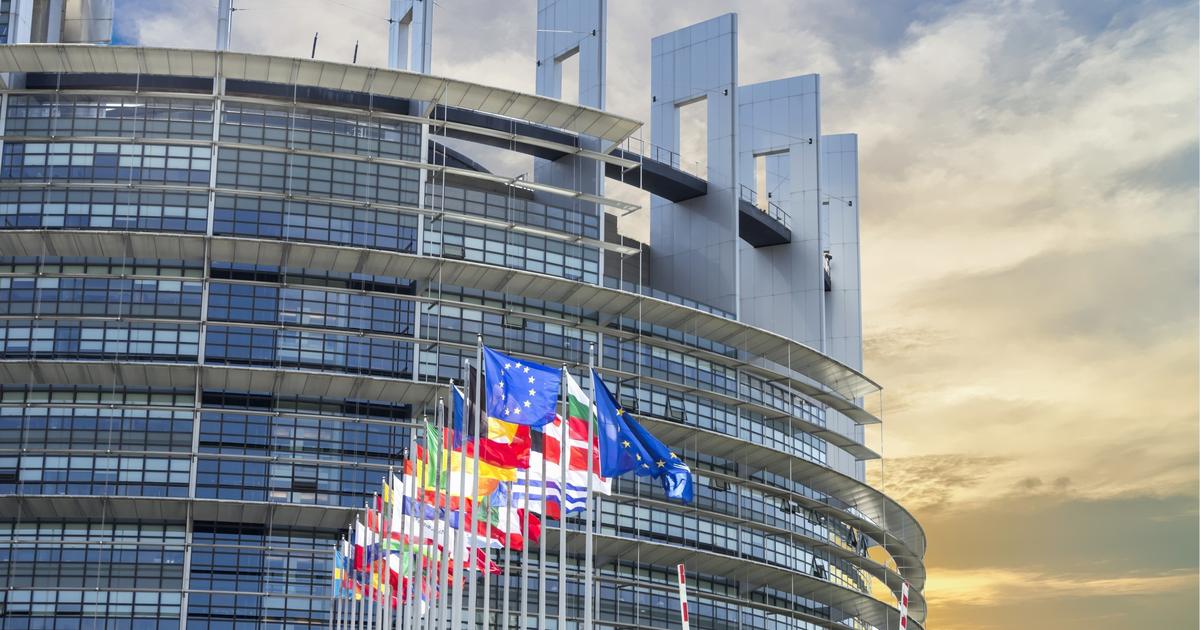A “
sharp turn to the right
”.
With less than five months before the European elections (June 6 to 9, 2024), the trends are becoming clearer.
In a vast projection study published this Thursday, January 24, the European Council on Foreign Relations (ECFR) think tank predicts a spectacular breakthrough by nationalist right-wing parties in the various member states of the European Union.
This progression will logically be accompanied by a loss of seats for progressive and centrist groups, currently in the majority in the European Parliament.
The two authors of this study collected the most recent opinion polls in each EU member state and applied a statistical model of the performance of national parties in previous years.
This model predicts the share of votes each national party will win in the 2024 European Parliament elections and calculates how many seats they are each likely to win.
The Identity and Democracy group, third force in Parliament?
Thus, the nationalist right parties of nine Member States could come out on top next June: Austria, Belgium, the Czech Republic, France, Hungary, Italy, the Netherlands, Poland and Slovakia .
They could also come second or third in nine other countries: Germany, Bulgaria, Estonia, Finland, Spain, Latvia, Portugal, Romania and Sweden.
The radical right group Identity and Democracy (ID), of which the National Rally is a part, could thus increase from 58 to 98 seats, and establish itself as the third force in Parliament.
Read alsoEuropean elections: from left to right, young people attack the Parliament of Strasbourg
Because conversely, the three large centrist groups of the European People's Party (EPP), the Progressive Alliance of Socialists and Democrats (S&D) and Renew (RE), could continue their decline, having lost seats during of the last two elections.
Currently, these three parties have 420 deputies out of 705. After the elections, they could see their number reduced to 390. According to the ECFR, the EPP would limit the damage, with five fewer seats.
The S&D would lose 10 seats, while Renew would find itself cut by 15 deputies.
The current composition of the European Parliament.
ECFR
The possible composition after the elections.
ECFR
At the same time, the Greens would also lose seats (61 against 71 currently), but the left party would gain some, going from 38 to 44. On the right, the group of European Conservatives and Reformists could gain 18 deputies (85 against 67 ) and the non-registered would see their number decrease (from 51 to 42).
These projections reflect the long-term decline in support for mainstream parties and the growing support for extremist parties.
Changes in the balance of coalitions
Ultimately, the “
super coalition
” (EPP, S&D, RE) would only have 54% of the seats, compared to 60% currently.
Given the traditionally average level of electoral cohesion within the different groups of the European Parliament, a majority could sometimes be difficult to muster for these parties.
Potential left-wing coalitions would also lose value, unlike potential right-wing coalitions.
Naturally, these forecasts include some uncertainty, linked to the relative reliability of opinion polls, but also to the indecision of some elected MPs as to which political groups they will join.
This paradigm shift could have several consequences on the EU political agenda, according to ECFR.
If the new composition of Parliament should not, initially, affect aid to Ukraine, for example, the fact that the grand centrist coalition will likely be less dominant than before could have an influence on certain issues, such as economic and fiscal freedom, the environment, or immigration and asylum policies.

